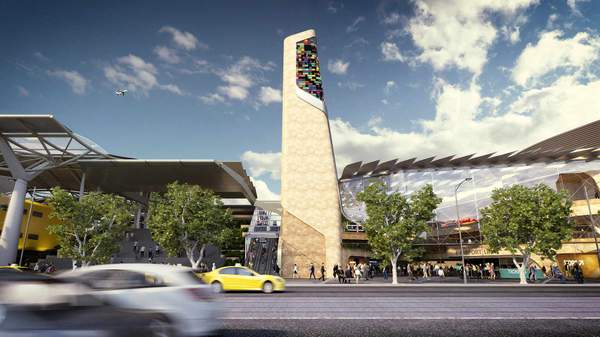Overview
Proposals for Melbourne's long-awaited airport rail link have been flying hard and fast in the lead-up to election time. Last November, the Victorian Government announced that construction would start on the project within the next ten years, then in July updated that timeline to a start date of within four years, if Labor is re-elected. And last month saw the unveiling of Premier Daniel Andrews' ambitious proposal for a brand new 90-kilometre Suburban Rail Loop, which would link to the airport line.
And now, a consortium called AirRail Melbourne has submitted a detailed plan of its own to the State and Federal governments. The plan — which was not solicited by the government — expands on its earlier project designs to create a world-class airport 'Super Train', but with intentions to kick off construction two years earlier than originally planned, in 2020.
The proposed $15 billion project would see the group match the $5 billion in funding already committed by both the State and Federal governments. AirRail Melbourne's proposed link would get passengers from the city to the airport via Sunshine in around 20 minutes, with trains running 24 hours a day and departing every ten minutes during peak times. New dedicated tracks and a huge overhaul of Sunshine Station, as a major connection point, would cut travel times drastically for regional travellers.
This would make the rail link private, so travellers can expect to pay up to $20 for a one-way trip between the CBD and Melbourne Airport.
The proposed Airport Rail Link path.
The project would also feature 27 kilometres of new track, two new tunnels and a fleet of custom-built airport trains. AirRail Melbourne is also claiming the proposed link would take around 15,000 cars off the road each day in Melbourne's north and west and reduce overcrowding on the existing Werribee line.
AirRail Melbourne has some pretty big names — and a fair bit of money — behind it, including superannuation fund managers IFM Investors, along with Metro Trains Australia, Melbourne Airport and Southern Cross Station. It's worth noting that IFM operates Southern Cross and has a stake in Melbourne Airport, so it has a lot to gain from increased traffic to the two sites.
The consortium pitched its grand designs to the government back in September, which kicked off the assessment process. It's expected that other groups in the private sector will submit plans to the government also, potentially with different route options. We're expected to know something before the end of 2018, but stay tuned and we'll let you know what unfolds.
Updated: October 29, 2018.
